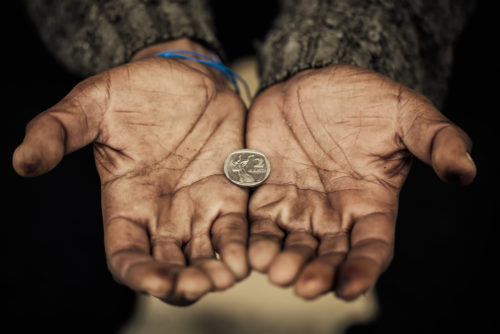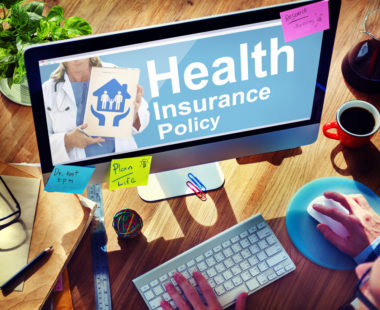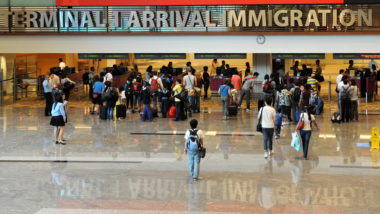Poverty is often associated with frugality and living inexpensively, but in reality, being poor can be more expensive than being wealthy or financially comfortable. For the millions of Americans living below, at, or near the poverty level, there are a variety of different factors that make being poor more costly. Below, we’ll analyze the factors contributing to the expense that being poor can become.
Table of Contents
Minimum Wage Jobs
The minimum wage is different in each state, but even in states and cities where it’s higher than the federal wage, it may not be enough for people to live on. If that’s the case, it’s almost impossible to save up funds to transition to a higher-paying position. Higher-paying jobs often require education and certifications that a person struggling to meet the cost of living cannot afford.
Moreover, when there is an increase in minimum wage, some companies may stop hiring and start outsourcing work to contractors instead. These companies might figure that the increase in pay means there are fewer funds available to pay more employees. This may cause companies to stop introducing new hires to the team, which can make it difficult for low-income individuals to even obtain work.
Further, many minimum wage jobs often have variable schedules that employees have little to no control over. This makes it difficult to get a second job as well as manage life at home. Without additional income from a second job, it is difficult to make any sort of advances.
Lack of Affordable Housing
Due to factors such as the Not In My Back Yard (NIMBY) ideology and gentrification, housing prices are on the rise. NIMBY advocates sometimes protest the development of low-income housing in certain areas, which limits where affordable housing can be built. Then, when these inexpensive homes are poorly developed in bad neighborhoods, it can create a safety threat to low-income families.
Gentrification is another factor that contributes to the expense of being poor. What was once an affordable neighborhood now has lavish homes with skyrocketing prices that are difficult for low-income earners to afford. While housing is certainly needed in urban areas to promote job growth and stimulate the economy, gentrification often results in the building of luxury homes in and around established neighborhoods with preexisting homes that are less-than-luxe. This puts pressure on homeowners of lower value homes to renovate, especially when it comes time to sell, which can make things difficult for low-income earners.
Many people do not earn enough money from their minimum wage jobs to afford increasingly expensive housing. Some people resort to other options, such as per-night hotels or Airbnbs. This leads impoverished people who are looking for a temporary solution to spend more each month on housing than it would cost to pay a traditional mortgage. In some cases, this can even lead to homelessness.
Transportation Troubles
In a country where a car is almost a necessity, getting around without one can be difficult. However, cars are expensive to purchase and maintain. From the costs of fuel to the costs of required maintenance, such as oil changes, annual inspections, and emergency repairs, owning a car can be a burden. Many people struggle to keep their vehicles in good working order, and it can be a dire situation if it does break down.
Public transportation is an option, but that is an added expense that must be budgeted for. The locations of a person’s home and job might even dictate how that individual has to get to work. Many people who live in the suburbs commute via train to their place of employment in the city to avoid costs associated with parking. Regardless of the method, the costs of transportation can drastically add to the expense of being poor.
Inaccessible Healthcare
Healthcare costs are also on the rise, and it’s even more difficult for poor people to get the care they need. Not only is it more difficult to actually pay for healthcare costs, but many low-income individuals may not be able to take time off work to visit a doctor. Taking time off to care for your health means a loss in wages needed to pay for said healthcare.
Low-income individuals often avoid seeking healthcare altogether, which can worsen health problems. In some cases, allowing a health problem to go unchecked may allow an illness to become life-threatening and ultimately more costly to treat.
If an illness does worsen, low-income individuals may also end up missing more work, losing out on more money and having even more financial difficulties. Illness can create a world of problems for anyone, but especially those with a low-income who need to work to live.
High Inflation and Increasing Costs of Living
For many Americans, wages are stagnant and inflation and cost of living increases make it difficult to get by. In other words, prices for goods and services are going up, but people aren’t being paid enough to afford them. This is especially the case for the impoverished.
Further, a 2015 study found that inflation has more greatly affected the goods that impoverished individuals are most likely to buy. In other words, compared with the prices of goods that middle- and high-income people buy, prices for products that low-income people buy have risen at a faster rate. The purchasing power of low-income individuals has diminished greatly, even more than that of middle-class Americans. This is even the case when purchasing inexpensive products, including basic necessities like food and housing.
The cycle of unfortunate events — such as natural disasters — that can affect impoverished people only ends up making the situation worse. As such, poverty is less about long-term financial planning and more about surviving in the short term.
Image Source: https://depositphotos.com/





